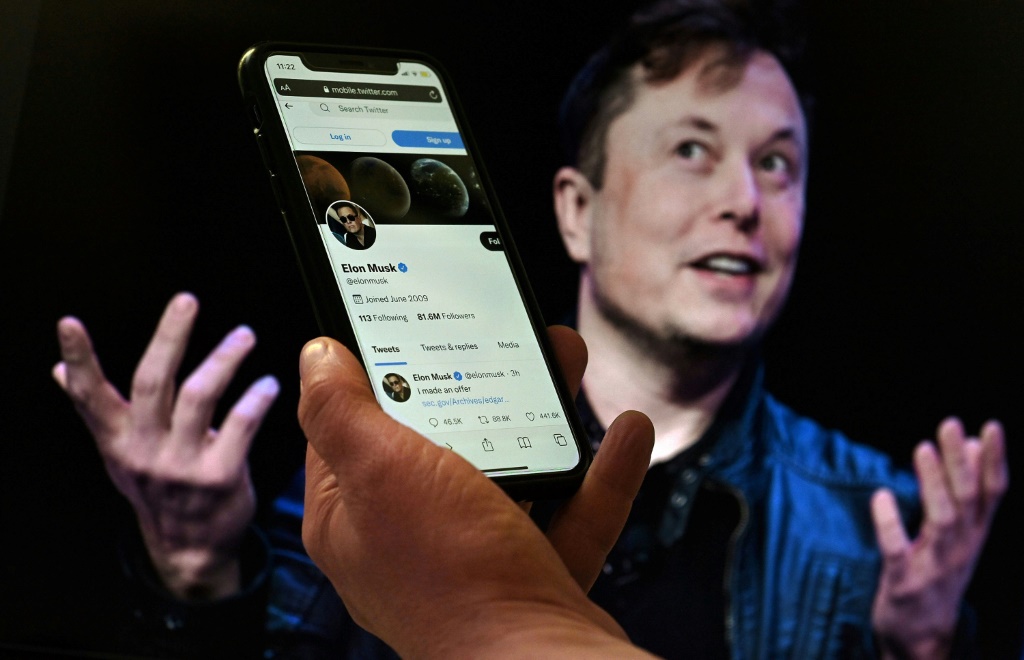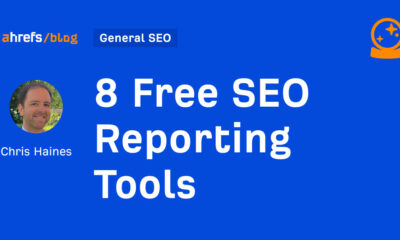SOCIAL
Free speech or hate speech? Fears for Musk’s Twitter

Elon Musk. – © POOL/AFP/File Britta Pedersen
Peter HUTCHISON
Elon Musk describes himself as a “free-speech absolutist,” leaving rights groups fearful that Twitter will provide a forum for hate speech and disinformation under his ownership.
The world’s richest man has signaled that, following his $44 billion takeover, he intends to reform what he sees as over-zealous policing of tweets.
Civil activists are worried that means Musk, 50, will allow banned extremists back to the platform.
“The last thing we need is a Twitter that willfully turns a blind eye to violent and abusive speech against users, particularly those most disproportionately impacted, including such as women, non-binary persons, and others,” Michael Kleinman, technology and human rights director at Amnesty International USA, said in a statement.
Like other social media networks, Twitter has struggled against disinformation, bullying and hate-fuelled content in recent years.
It has banned numerous users for promoting violence or threatening or attacking people based on their race, religion, gender identity or disability, among other forms of discrimination.
High-profile people removed from the platform include former Ku Klux Klan leader David Duke, far-right conspiracy theorist Alex Jones, and ex-president Donald Trump.
Twitter has also cracked down on lies about Covid-19 and removed thousands of accounts linked to the far-right “QAnon” movement, whose followers believe Trump is waging a secret war against a global liberal cult of Satan-worshipping pedophiles.
Many conspiracy theorists joined newer, far-right-friendly platforms such as Gab and Parler.
Trump, who was banned after the assault on the US Capitol by his supporters on January 6 last year as they sought to overturn the 2020 US presidential election result, vowed not to return to Twitter even if Musk reinstated him.
But conservatives, who have long complained about social media platforms being run by Silicon Valley-based liberals, are heralding libertarian Musk’s deal.
“I am hopeful that Elon Musk will help rein in Big Tech’s history of censoring users that have a different viewpoint,” tweeted Republican senator Marsha Blackburn.
Derrick Johnson, CEO of the National Association for the Advancement of Colored People (NAACP), said that while “free speech is wonderful, hate speech is unacceptable.”
“Do not allow Twitter to become a petri dish for hate speech, or falsehoods that subvert our democracy. Protecting our democracy is of utmost importance, especially as the midterm elections approach,” he said.
– Moderation –
In Brussels, the International Federation of Journalists echoed that call, expressed concern that the billionaire would damage media freedoms “by exacerbating opportunities to attack journalists” on the site.
IFJ general secretary Anthony Bellanger said Twitter, which has 400 million users, “must be duly moderated, while respecting freedom of speech.”
Experts say that once at the helm, Musk may find that staying true to his free speech instincts isn’t so simple.
In the European Union for example, Twitter will have to comply with the new Digital Services Act, a major piece of EU legislation ensuring tougher consequences when platforms host banned content.
“He’s going to have to have some form of content moderation policy. That’s going to be challenging for Musk,” New York University politics and media expert Joshua Tucker told AFP.
The entrepreneur will also be wary about making too many changes that contribute to users flocking away from the site, analysts say.
“If it becomes a place of hateful content and it chases away journalists, then it loses its value,” Karen North, professor of digital social media at the Annenberg journalism school in California told AFP.
Musk has not specified exactly what restrictions he intends to roll back. But he hinted in a tweet Tuesday that change was coming.
“The extreme antibody reaction from those who fear free speech says it all,” he wrote.
Source link
SOCIAL
Snapchat Explores New Messaging Retention Feature: A Game-Changer or Risky Move?

In a recent announcement, Snapchat revealed a groundbreaking update that challenges its traditional design ethos. The platform is experimenting with an option that allows users to defy the 24-hour auto-delete rule, a feature synonymous with Snapchat’s ephemeral messaging model.
The proposed change aims to introduce a “Never delete” option in messaging retention settings, aligning Snapchat more closely with conventional messaging apps. While this move may blur Snapchat’s distinctive selling point, Snap appears convinced of its necessity.
According to Snap, the decision stems from user feedback and a commitment to innovation based on user needs. The company aims to provide greater flexibility and control over conversations, catering to the preferences of its community.
Currently undergoing trials in select markets, the new feature empowers users to adjust retention settings on a conversation-by-conversation basis. Flexibility remains paramount, with participants able to modify settings within chats and receive in-chat notifications to ensure transparency.
Snapchat underscores that the default auto-delete feature will persist, reinforcing its design philosophy centered on ephemerality. However, with the app gaining traction as a primary messaging platform, the option offers users a means to preserve longer chat histories.
The update marks a pivotal moment for Snapchat, renowned for its disappearing message premise, especially popular among younger demographics. Retaining this focus has been pivotal to Snapchat’s identity, but the shift suggests a broader strategy aimed at diversifying its user base.
This strategy may appeal particularly to older demographics, potentially extending Snapchat’s relevance as users age. By emulating features of conventional messaging platforms, Snapchat seeks to enhance its appeal and broaden its reach.
Yet, the introduction of message retention poses questions about Snapchat’s uniqueness. While addressing user demands, the risk of diluting Snapchat’s distinctiveness looms large.
As Snapchat ventures into uncharted territory, the outcome of this experiment remains uncertain. Will message retention propel Snapchat to new heights, or will it compromise the platform’s uniqueness?
Only time will tell.
SOCIAL
Catering to specific audience boosts your business, says accountant turned coach

While it is tempting to try to appeal to a broad audience, the founder of alcohol-free coaching service Just the Tonic, Sandra Parker, believes the best thing you can do for your business is focus on your niche. Here’s how she did just that.
When running a business, reaching out to as many clients as possible can be tempting. But it also risks making your marketing “too generic,” warns Sandra Parker, the founder of Just The Tonic Coaching.
“From the very start of my business, I knew exactly who I could help and who I couldn’t,” Parker told My Biggest Lessons.
Parker struggled with alcohol dependence as a young professional. Today, her business targets high-achieving individuals who face challenges similar to those she had early in her career.
“I understand their frustrations, I understand their fears, and I understand their coping mechanisms and the stories they’re telling themselves,” Parker said. “Because of that, I’m able to market very effectively, to speak in a language that they understand, and am able to reach them.”Â
“I believe that it’s really important that you know exactly who your customer or your client is, and you target them, and you resist the temptation to make your marketing too generic to try and reach everyone,” she explained.
“If you speak specifically to your target clients, you will reach them, and I believe that’s the way that you’re going to be more successful.
Watch the video for more of Sandra Parker’s biggest lessons.
SOCIAL
Instagram Tests Live-Stream Games to Enhance Engagement

Instagram’s testing out some new options to help spice up your live-streams in the app, with some live broadcasters now able to select a game that they can play with viewers in-stream.
As you can see in these example screens, posted by Ahmed Ghanem, some creators now have the option to play either “This or That”, a question and answer prompt that you can share with your viewers, or “Trivia”, to generate more engagement within your IG live-streams.
That could be a simple way to spark more conversation and interaction, which could then lead into further engagement opportunities from your live audience.
Meta’s been exploring more ways to make live-streaming a bigger consideration for IG creators, with a view to live-streams potentially catching on with more users.
That includes the gradual expansion of its “Stars” live-stream donation program, giving more creators in more regions a means to accept donations from live-stream viewers, while back in December, Instagram also added some new options to make it easier to go live using third-party tools via desktop PCs.
Live streaming has been a major shift in China, where shopping live-streams, in particular, have led to massive opportunities for streaming platforms. They haven’t caught on in the same way in Western regions, but as TikTok and YouTube look to push live-stream adoption, there is still a chance that they will become a much bigger element in future.
Which is why IG is also trying to stay in touch, and add more ways for its creators to engage via streams. Live-stream games is another element within this, which could make this a better community-building, and potentially sales-driving option.
We’ve asked Instagram for more information on this test, and we’ll update this post if/when we hear back.
-

 PPC5 days ago
PPC5 days ago19 Best SEO Tools in 2024 (For Every Use Case)
-

 MARKETING6 days ago
MARKETING6 days agoStreamlining Processes for Increased Efficiency and Results
-
SEARCHENGINES6 days ago
Daily Search Forum Recap: April 17, 2024
-

 SEO6 days ago
SEO6 days agoAn In-Depth Guide And Best Practices For Mobile SEO
-

 PPC6 days ago
PPC6 days ago97 Marvelous May Content Ideas for Blog Posts, Videos, & More
-
SEARCHENGINES5 days ago
Daily Search Forum Recap: April 18, 2024
-

 MARKETING6 days ago
MARKETING6 days agoEcommerce evolution: Blurring the lines between B2B and B2C
-
SEARCHENGINES4 days ago
Daily Search Forum Recap: April 19, 2024
















You must be logged in to post a comment Login